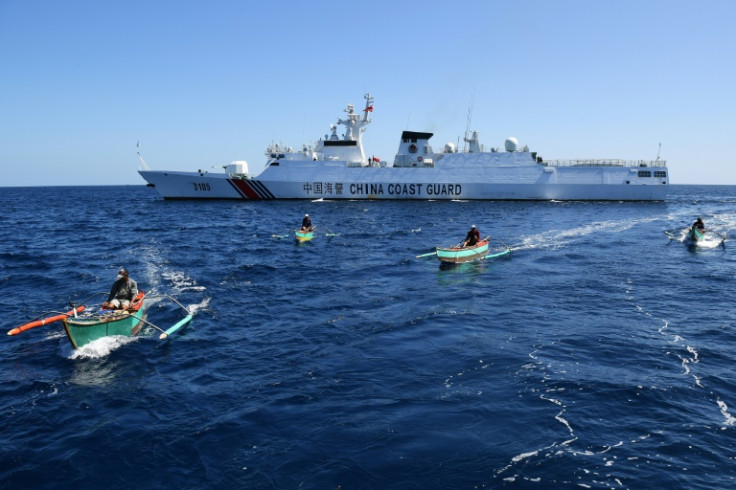Philippines Foreign Minister Urges China: 'Stop Harassing Us'

Philippine foreign minister Enrique Manalo told AFP on Monday that his country wants to solve maritime disputes with China peacefully -- but delivered a simple message to Beijing: "stop harassing us."
Speaking on the sidelines of an ASEAN-Australia summit in Melbourne, Manalo defended his government's policy of publicising Chinese manoeuvres in contested maritime territory -- including the recent passage of warships near Scarborough Shoal.
"It's merely trying to inform the people of what's going on," Manalo said. "And some countries or one country at least has some difficulty with that."
"But our simple explanation is if you would stop harassing us and, and perhaps performing other actions, there wouldn't be any news to report."
Philippine President Ferdinand Marcos was similarly forthright when he appeared later on Monday evening at an event hosted by an Australian think tank.
"We shall never surrender even a square inch of our territory and our maritime jurisdiction," he said on the sidelines of the ASEAN summit in Melbourne.
China claims almost the entire South China Sea, brushing aside claims from a host of Southeast Asian nations.
Scarborough Shoal -- a triangular chain of reefs and rocks in the disputed South China Sea -- has been a flashpoint between the countries since China seized it from the Philippines in 2012.
"China's position on the South China Sea question is consistent and clear," China's foreign ministry spokesperson Mao Ning said Monday in response to Manalo's comments.
"The cause of the recent maritime issues is that the Philippines has frequently taken provocative actions in the South China Sea that violate our rights."
Philippine governments have tried to rally international and regional support to their cause -- with mixed results.
"The Philippines is committed to a peaceful resolution of disputes through diplomatic means, or peaceful means," Manalo said, while insisting that "this will not be done at the expense of our national interest."
"We are reaching out to partners in like-minded countries with similar issues and similar concerns."
But Manalo acknowledged there was at least a small question mark over support from the Philippines's most important security partner -- the United States.
The two countries are treaty allies, meaning Washington has formally pledged to come to Manila's defence in the event of a military conflict.
Asked about the November presidential election -- which will pit incumbent Joe Biden against Republican firebrand Donald Trump, he said it was a topic of frequent debate behind closed doors.
"Every country in the world is probably thinking of that, of course. The United States is a major, it's a treaty ally of the Philippines. So obviously, any differences or changes in US policy from existing policies would most likely have some kind of effect."
"At this stage, it's fairly difficult to assess how it would happen, or what would happen," he said.
"But all I can say is we are, of course, carefully monitoring the election season in the United States, but I've had talks with many of my other colleagues from other countries, and I think everybody is doing the same."
"So certainly all eyes will be riveted on that election this year."

© Copyright AFP 2025. All rights reserved.





















